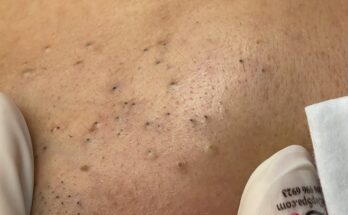
More than just a tool to prevent sunburn, sunscreen is the most effective anti-aging product you can use. This is because the sun’s ultraviolet (UV) rays are responsible for up to 90% of the visible signs of aging, a process known as photoaging. Understanding how UV radiation affects your skin is the key to appreciating why daily SPF is non-negotiable.
UV rays come in two main types: UVA and UVB. UVA rays penetrate deep into the skin’s dermis, where they damage the collagen and elastin fibers that keep skin firm and youthful. This breakdown leads to fine lines, wrinkles, and a loss of elasticity. UVA rays also contribute to the development of sunspots and uneven skin tone. On the other hand, UVB rays primarily affect the skin’s outer layer, causing sunburn. While a sunburn may seem like a temporary problem, the damage is long-lasting, increasing your risk of skin cancer.
To protect your skin, a daily SPF habit is crucial. Sunscreen should be the final step in your morning skincare routine, applied generously to your face, neck, and any other exposed areas. It’s important to use a “broad-spectrum” sunscreen with an SPF of 30 or higher, as this ensures protection against both UVA and UVB rays. Even on cloudy days or when you’re indoors, UV rays can still penetrate through windows, so daily application is essential. Remember to reapply every two hours, especially if you’re sweating or swimming.
When choosing a sunscreen, consider your skin type. If you have oily or acne-prone skin, look for a lightweight, oil-free, and non-comedogenic formula, often found in gel or fluid textures. For dry skin, opt for a creamy, hydrating sunscreen that contains moisturizing ingredients like ceramides or hyaluronic acid. Those with sensitive skin may benefit from a mineral-based sunscreen containing zinc oxide and titanium dioxide, as these ingredients are less likely to cause irritation. Ultimately, the best sunscreen is the one you will use consistently.


